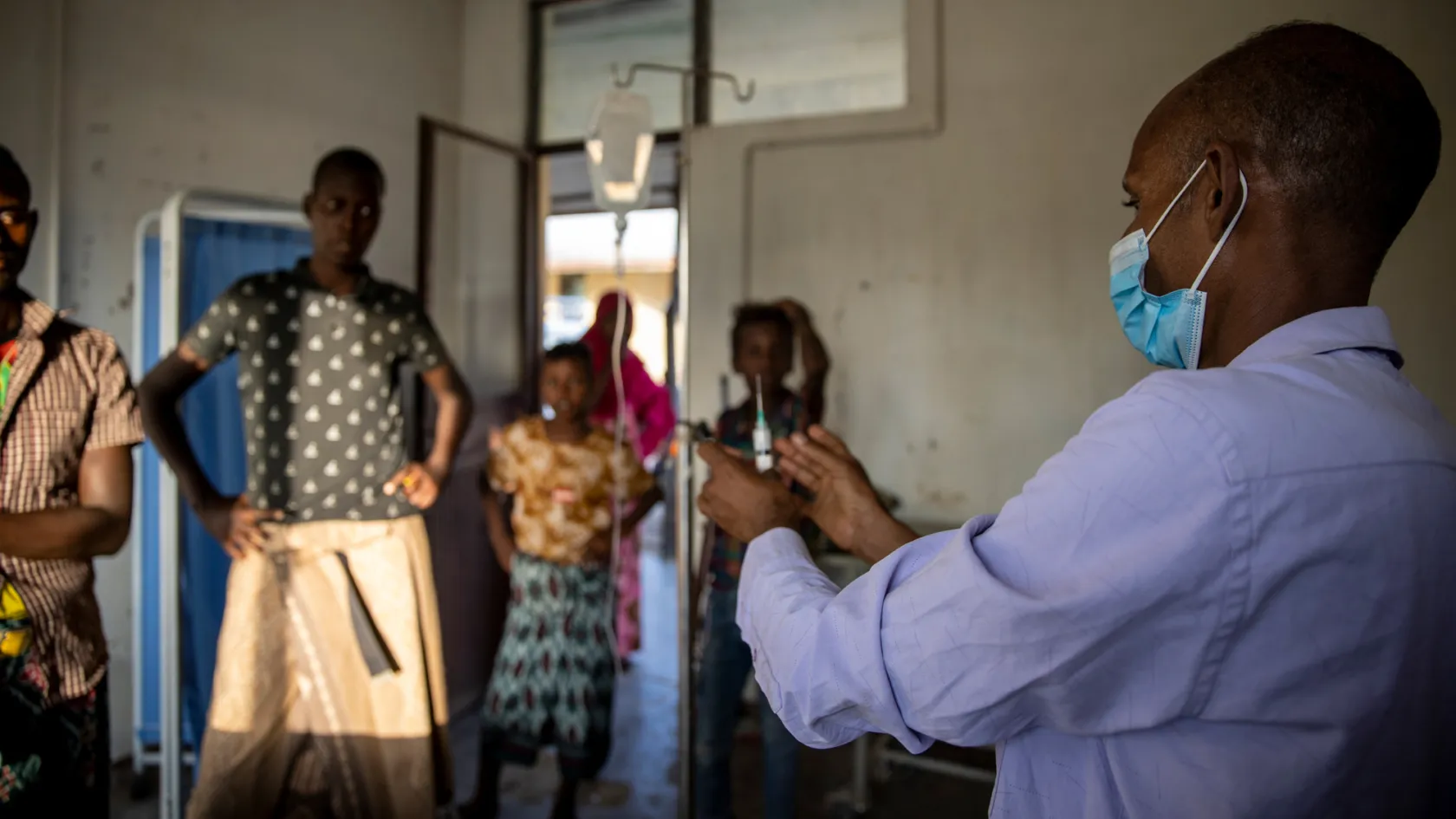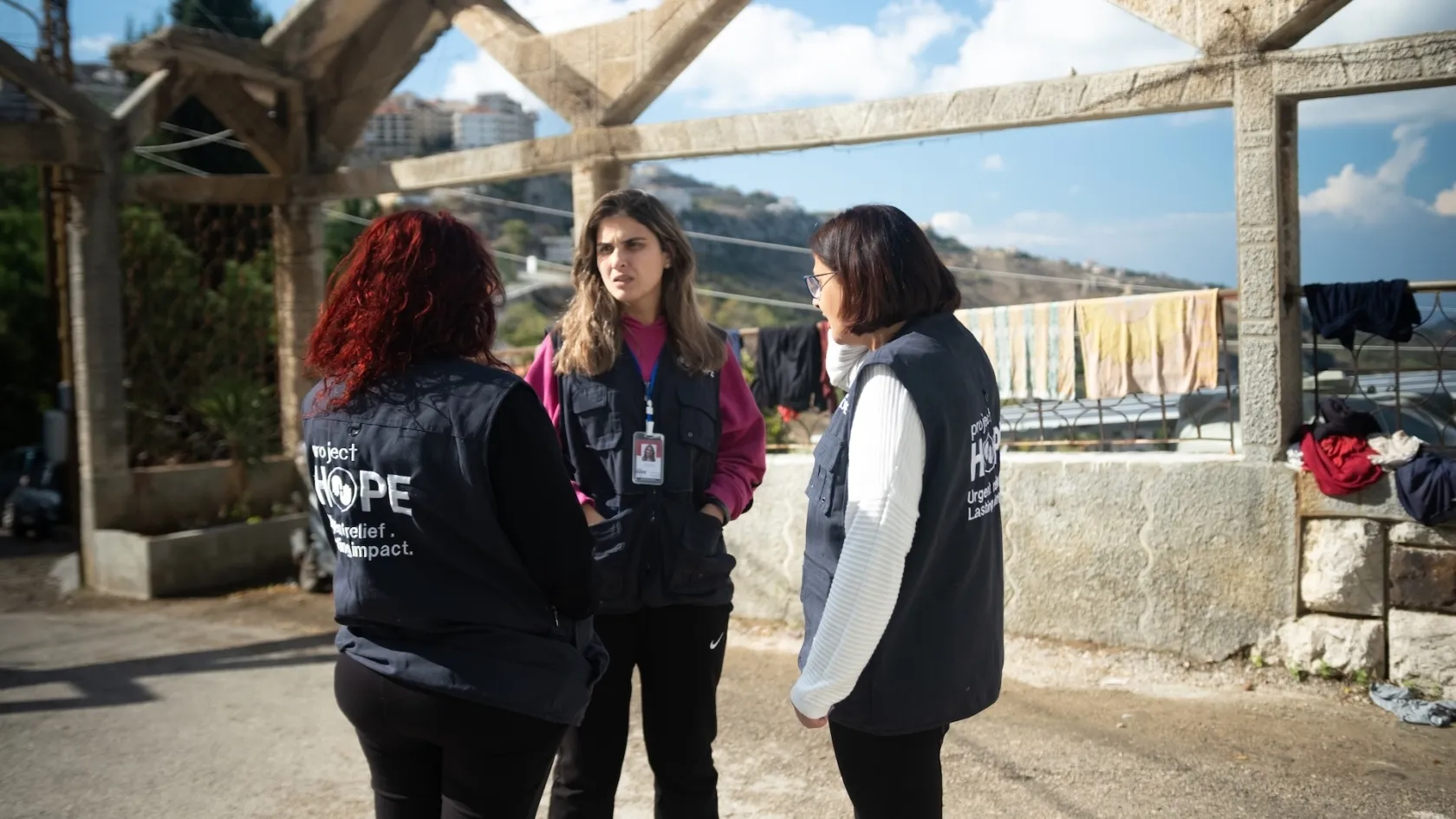The Health Workers Keeping the Shattered Doors Open at Kherson’s Children’s Hospital
For more than two years, health workers at the Kherson Regional Children’s Hospital have been on the front line of war, working under occupation and constant shelling. Project HOPE is providing them with financial grants and mental health services so they can endure the darkest and most dangerous days of their lives.
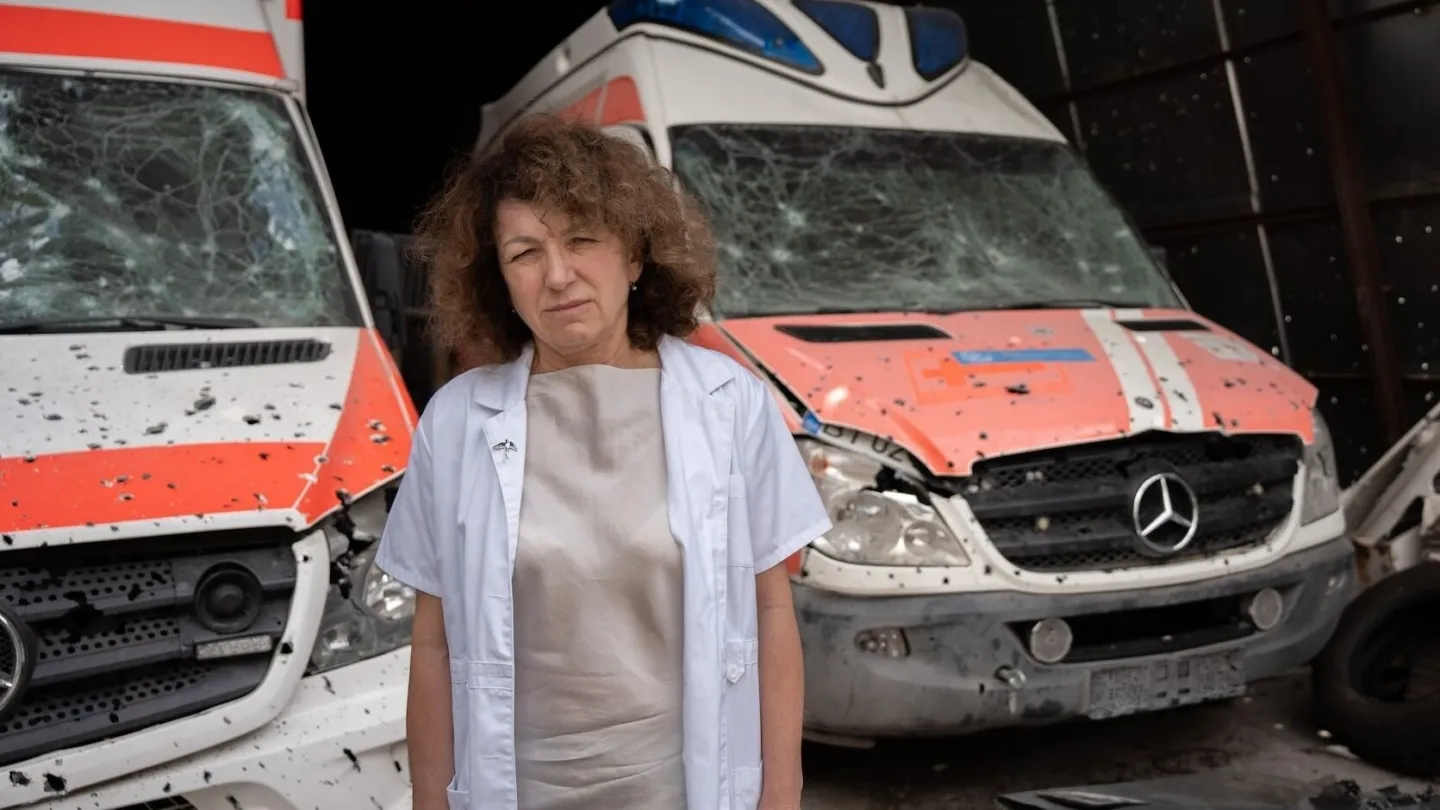
Every day, Yulia Galinska risks her life to save others — even on her days off. She recently came under fire while walking to her car in a drug store parking lot.
“I provided first aid to the injured children who were nearby. Sadly, not all of them were saved, but some were. Moments like that are etched in your memory and morale.”
Yulia lives in Kherson city, Ukraine and is a general practitioner at the Kherson Regional Children’s Hospital — one of the hospitals situated on the front line of the war. Many health workers, especially doctors, fled the region during the full-scale invasion in 2022. Yulia stayed.
“We realize that we are very much needed here,” she says. “There is a great need for children’s doctors, so we are ready for any circumstances.”
For more than two years, the hospital and its health workers have withstood violent attacks and countless losses. Project HOPE is providing mental health support and financial grants to doctors like Yulia, helping them endure the ongoing crisis and the dangerous working conditions.
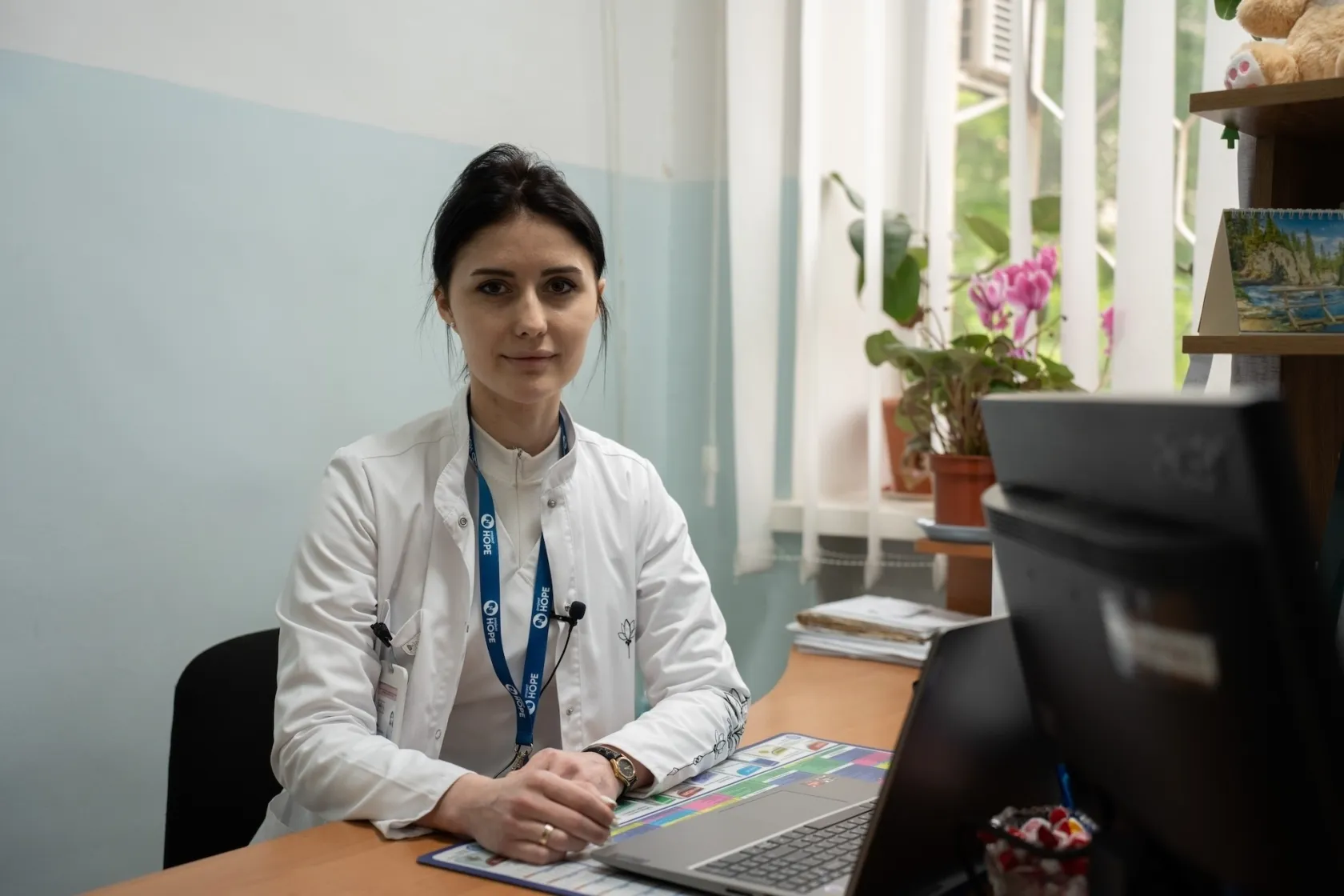
A hospital under siege
Located in the south of Ukraine, Kherson was occupied by Russian troops in March 2022, at the beginning of the invasion. Though the region was de-occupied in fall 2022, it has remained a target. The territory suffers constant shelling.
“We are less than a kilometer from the Russian-occupied left bank, so every day there are new arson attacks here and there,” Yulia says.
Many hospitals have been badly damaged, and the children’s hospital where Yulia works is no exception. The neonatal unit has been completely destroyed. The canteen and the heating and water systems have been damaged. The doors and windows have become “a consumable item,” in constant need of repair or replacement.
Project HOPE’s BHA-funded Critical Care Transport Ambulances (CCTAs) regularly transport injured children to this facility for care and support the hospital with transferring pediatric patients to other hospitals in the region when additional higher-level care is needed or to ensure they have space in the event of a mass casualty incident. In June, two of these ambulances were badly damaged during a heavy bombardment and are no longer operational, greatly disabling the team’s ability to reach remote villages.
Despite the dangers and threats, the health workers who remain at Kherson Children’s Hospital have continued to provide a full range of medical services since the first days of the occupation and after liberation — treating both children and adults.
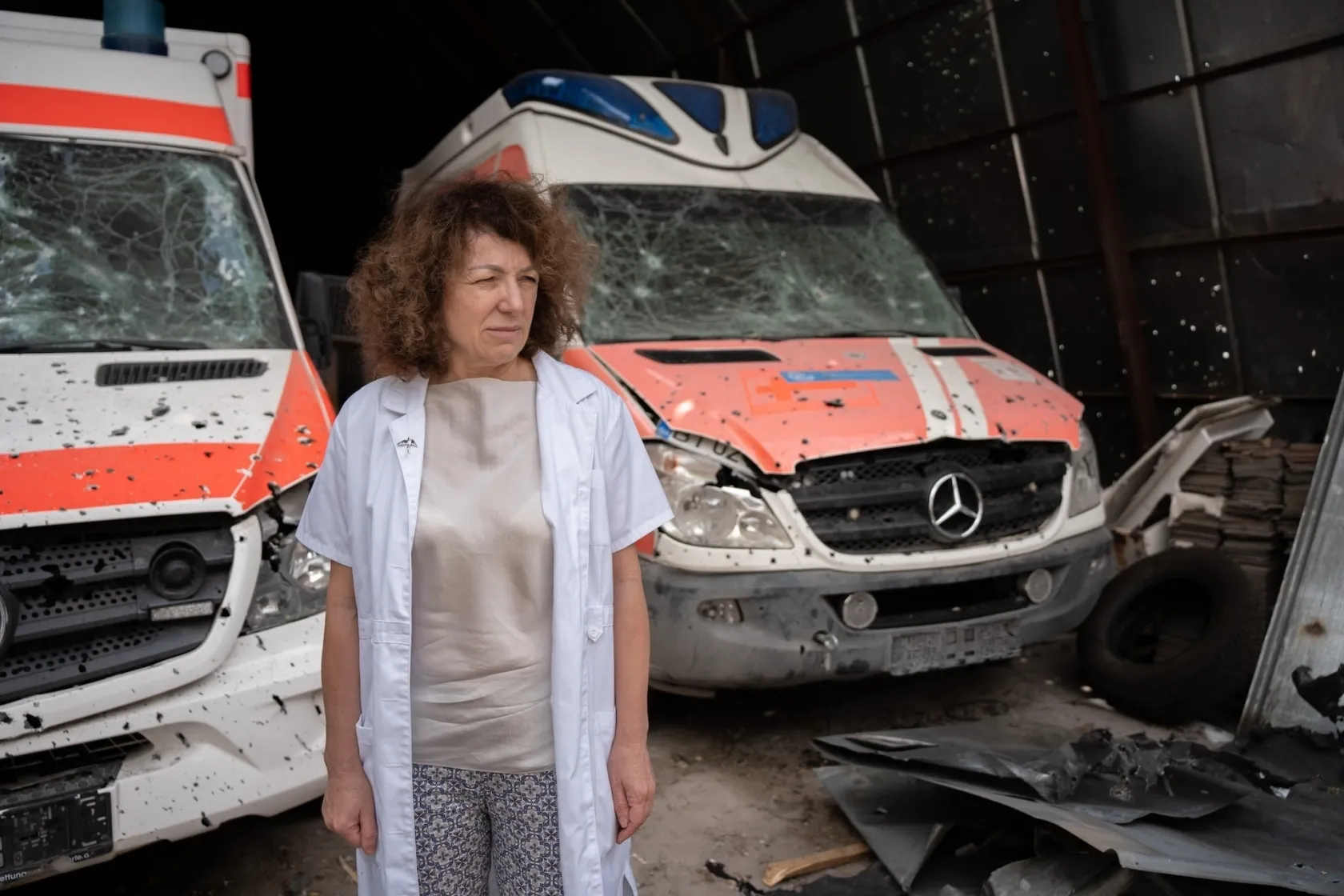
Thanks to financial grants from Project HOPE, with support of the Swiss Agency for Development and Cooperation (SDC), doctors are receiving surge support to continue their work. Yulia has used her grant to learn how to work with patients injured by missile parts.
“There are not enough doctors and I often have to do almost everything on my own,” she says. “I need additional knowledge and support. I have to study online and offline to get the necessary knowledge that will help me now, for example, to treat children with explosive trauma. We have not had this experience before.
“Some important courses I need are not free. Thanks to this grant I can afford them. And it motivates and inspires me to do more. I understand that I am not alone here, that I am supported.”
Dr. Vitaliy Badzian, a hospital ears, nose, and throat (ENT) doctor, used his grant for professional development as well. He returned to the hospital immediately after the liberation, despite the ongoing security situation.
“When I am working, I forget about all the danger — I do not have time to think about it,” Vitaliy says. “My work is needed here, because there are sick children who need treatment.”
“I really feel needed and taken care of, and I know that I am not neglected,” he says. “So, I am really grateful for it.”
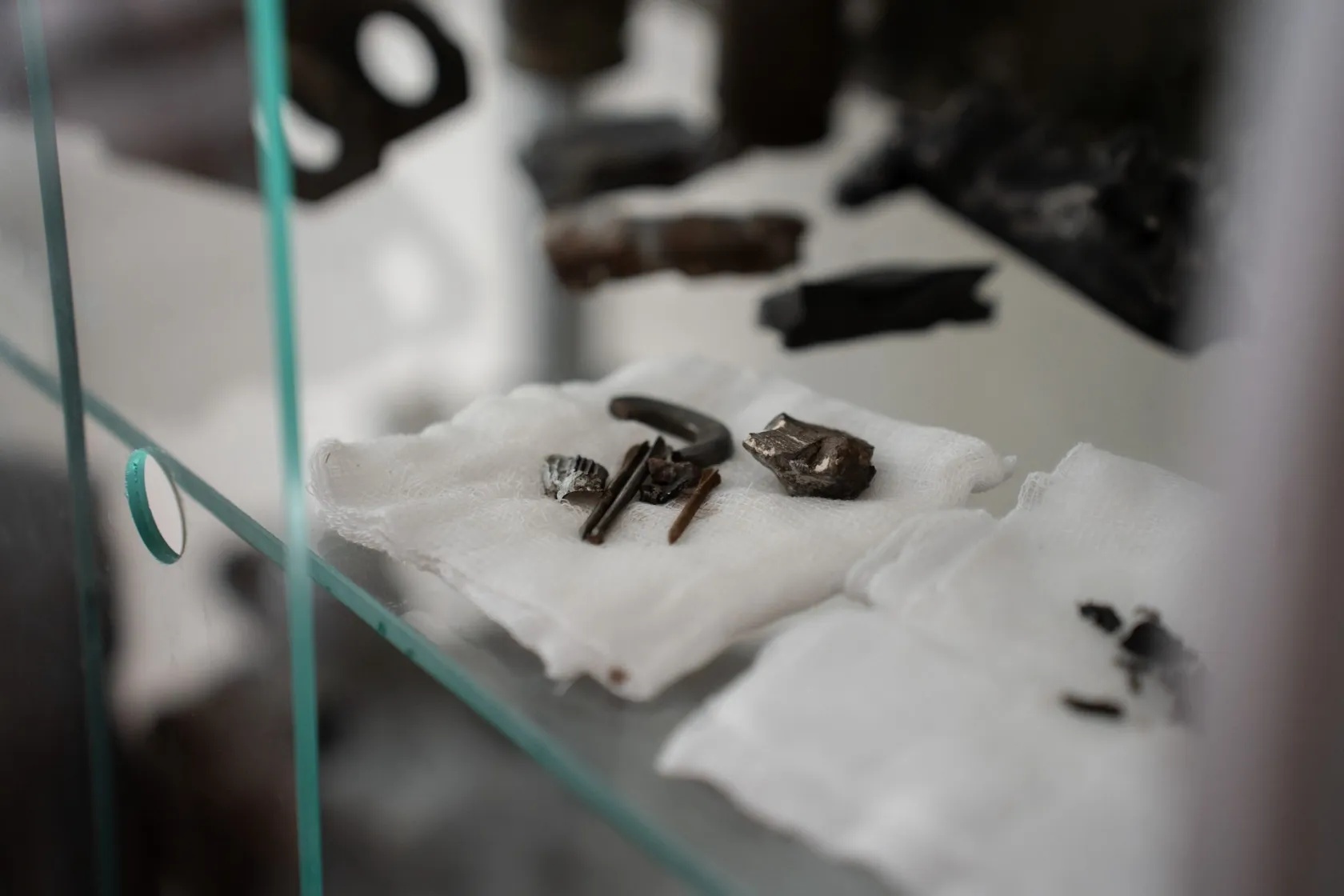
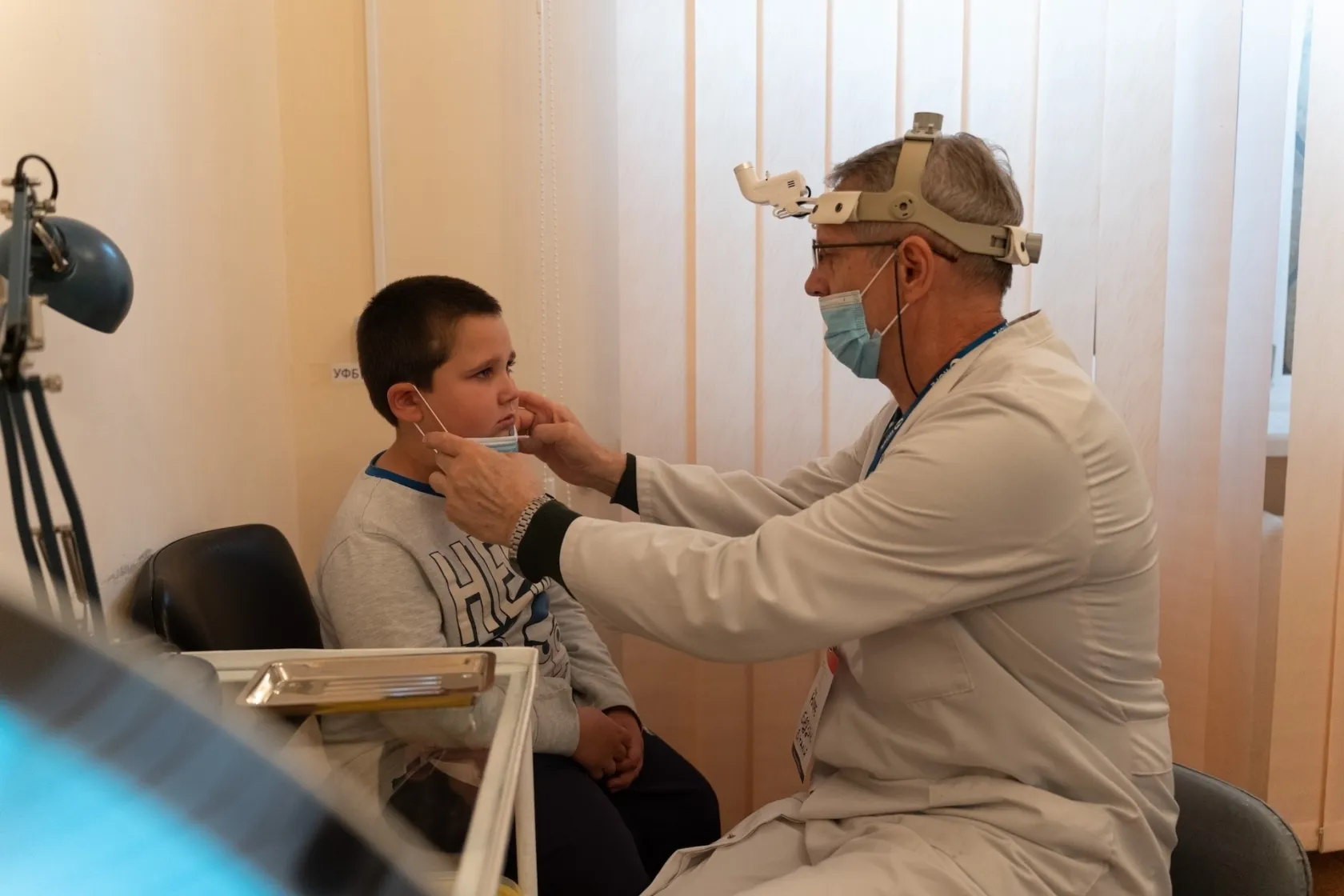
Mental health underground
Nurses and doctors at Kherson Children’s Hospital are learning to live and work on edge. They are treating patients with explosive trauma for the first time. They are removing shrapnel from children on a regular basis. They are finding and collecting pieces of rockets on the hospital grounds. Those who work the night shift are seeking shelter underground alongside their patients.
“At 8 o’clock in the evening, all of the hospital’s patients go down to the shelter and spend the night there, as the danger is constant and there is little or no time between the alarm and the bombing,” says hospital director Dr. Inna Kholodnyak.
Safety has become paramount.
“We have a fully equipped shelter,” Inna says. “In the shelter we have an operating theatre, a playroom, and a mental health and psychological support [MHPSS] center, which we opened together with Project HOPE thanks to support from USAID/BHA.”
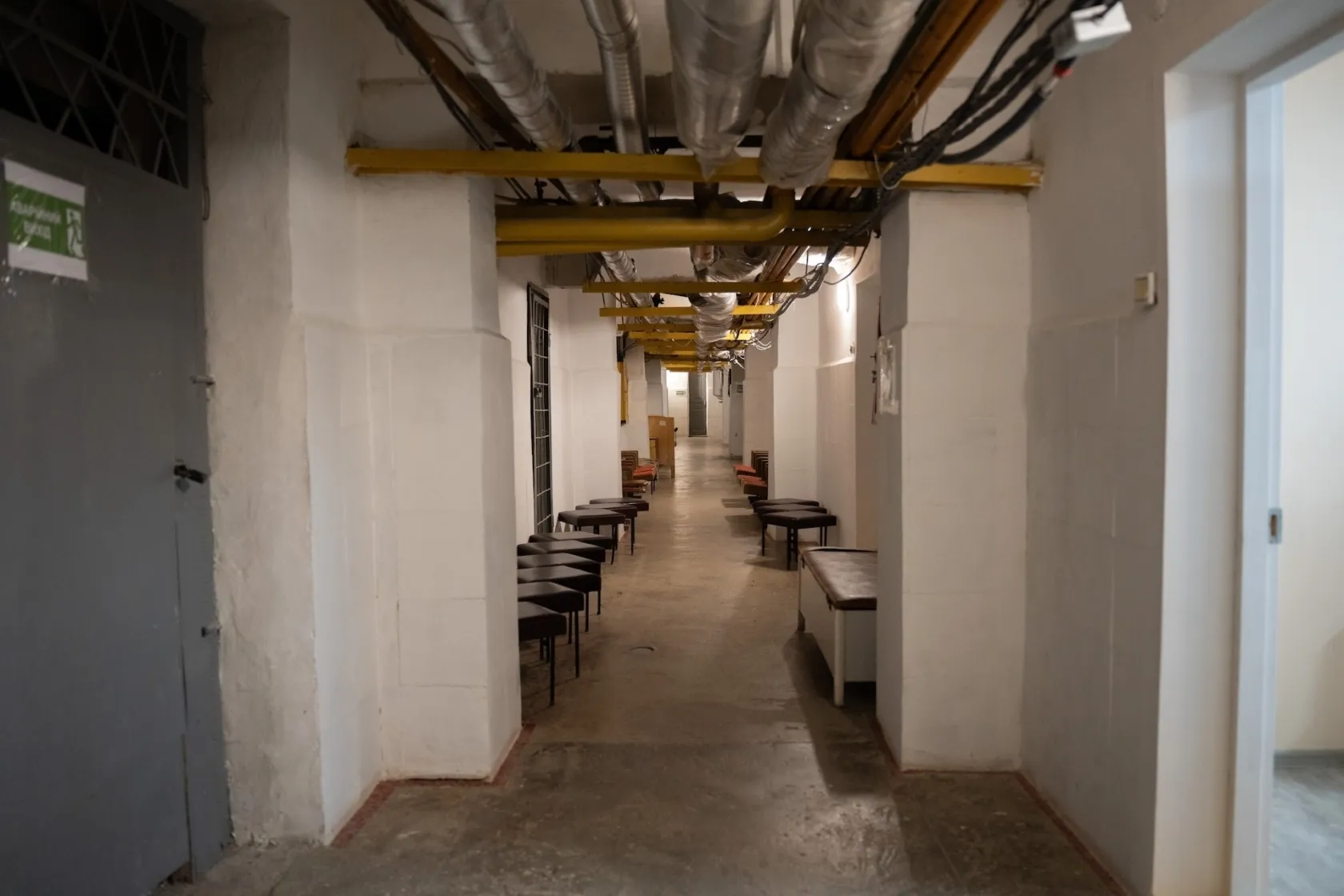
The MHPSS center has been open since February. Olga, a Project HOPE psychologist, offers support to both patients and medical staff and “has become an integral part of the hospital team,” according to Inna.
“Health workers in the city of Kherson face enormous tension and stress on a daily basis,” Olga says. “Unfortunately, few of them have had the opportunity to leave the city, even for a short holiday. Some of them also have relatives on the battlefield. They are grappling with the loss of loved ones and uncertainty about the future. Qualified psychological support is so important for their well-being today.”
Episodes of depression, anxiety, insomnia, and grief are all common. These are the symptoms of working in a conflict zone. For many, the greatest stressor is the daily effort to stay alive, to do the lifesaving work they are devoted to.
“The main challenge now is to survive,” Vitality says. “To arrive at work alive so that I can be able to provide medical care to those who need it, and then to come back home from the hospital alive.”

